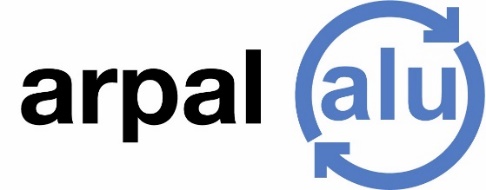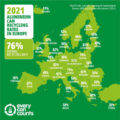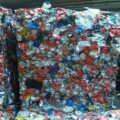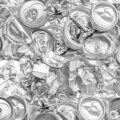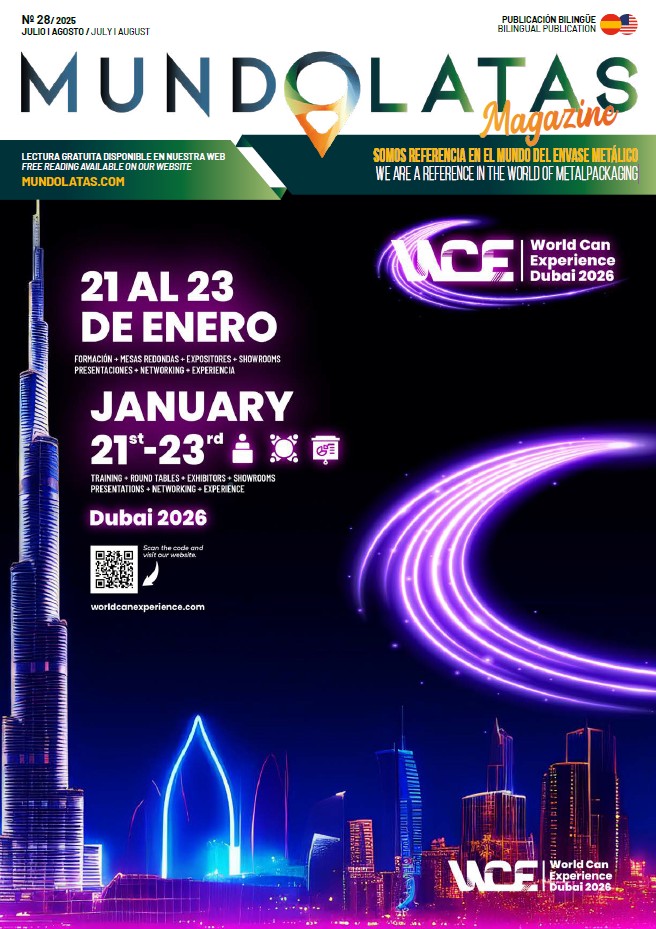During World Environment Day week, we remember that we must get on board the recycling train with rigid, semi-rigid, and flexible aluminum packaging.
More than 75% of the aluminum produced over a century ago is still in use today, thanks to recycling.
At ARPAL, we have been contributing to giving aluminum a new life for 30 years
The main objective of ARPAL is to promote citizens’ identification of aluminum packaging and understand the importance of recycling them, thus depositing more packages in the yellow container. As stated in the report by the International Aluminium Institute (IAI) included in our White Paper on Aluminium and its Recycling, it is estimated that aluminum packaging will increase from 7.2Mt in 2020 to 10.5Mt in 2030, driven by an increase in the popularity of canned beverages in North America, Europe, and China, with a consequent increase in demand for eco-friendly packaging.
That’s why we need to get on board the aluminum recycling train with our packaging rigid such as beverage cans, aerosols, cosmetic jars, bottles, food cans, and jar lids; packaging semi-rigid, such as food trays, pet food, cream tubes, and tubs; and not forgetting flexible packaging, such as yogurt lids, flans, and even the cover of wine bottle caps and the aluminum caps themselves; the flexible aluminum foils that protect the contents of candies, chocolates, and chocolate bars; gift wrapping and aluminum foil which, as recommended by ARPAL, we can later form into a ball with small aluminum packages or parts of packages that we will then deposit in the yellow container.
Great benefits
By recycling aluminum, we save up to 95% of the energy used to obtain primary aluminum and resources. Recycling aluminum packaging is allowing the earth to save not only bauxite ore but all the elements needed for its extraction and subsequent conversion to aluminum, such as water. Moreover, thanks to industry advances, the amount of aluminum used for packaging manufacturing has also been reduced: for example, aluminum cans now require about 40% less metal than cans made 25 years ago.
Aluminum packaging deposited in the yellow container also allows for a reduction in CO2 emissions. By replacing extraction with aluminum recycling, tons of greenhouse gases are being prevented from entering the atmosphere. If one ton of recycled aluminum is used, 9 tons of greenhouse gases are saved.
Undoubtedly, the recycling sector is becoming increasingly important in Spain in economic terms. The Spanish Federation of Recovery and Recycling highlights that the recycling sector in general in Spain generates 33,000 direct jobs, 10 billion euros in turnover, and a total of 5,000 companies. These figures demonstrate the enormous role that the recycling industry plays in Spain, which already accounts for 1% of the Gross Domestic Product.
The recycling industry, of which recycled aluminum is a part, is committed to the environment, job creation, and innovation. A professionalized industry that has become a key link in the circular economy, contributing to sustainable development by reusing and recycling the planet’s non-renewable resources.

